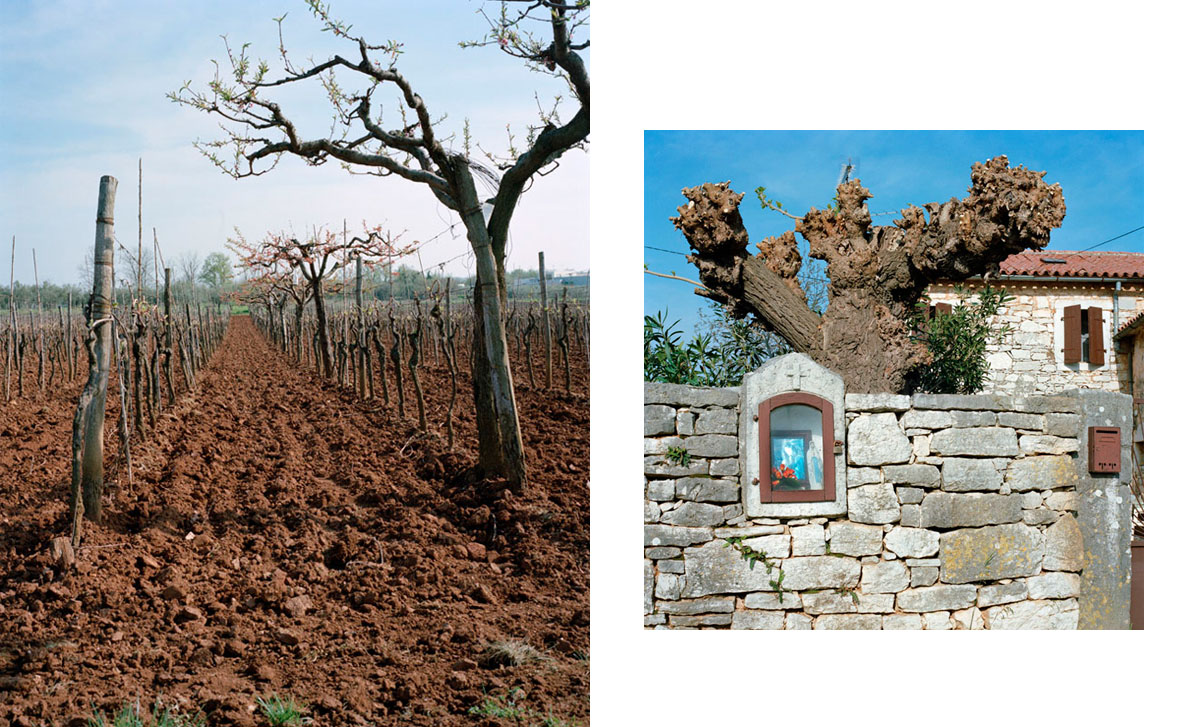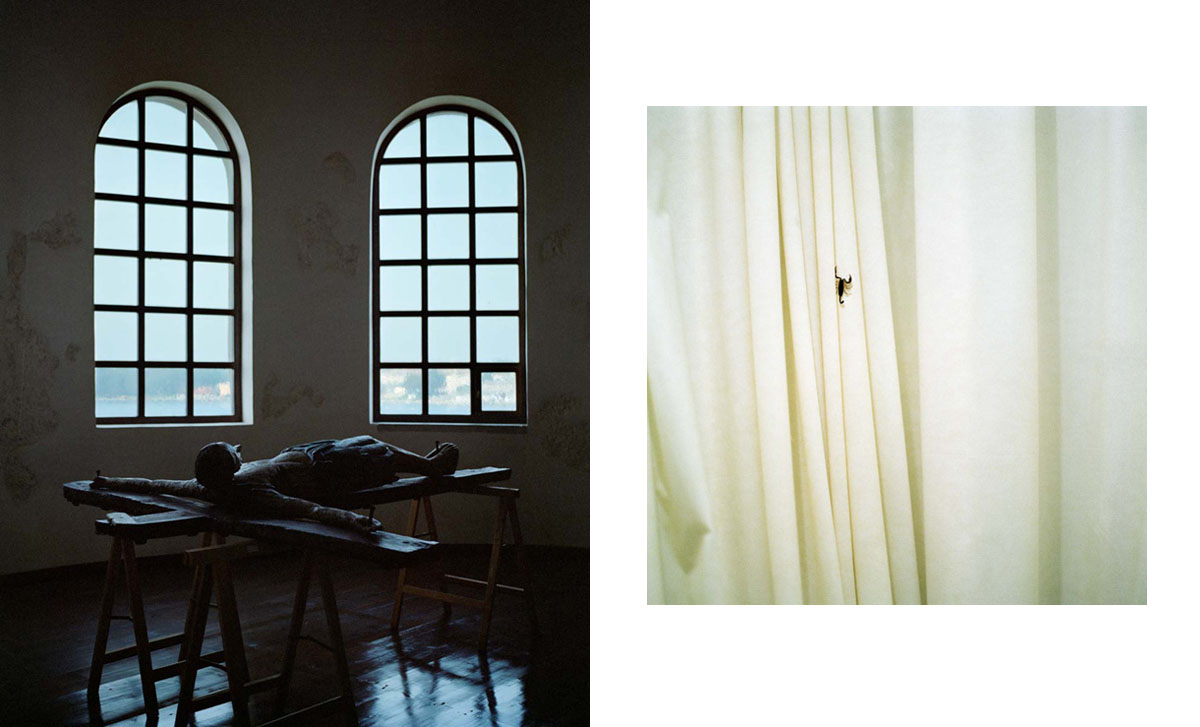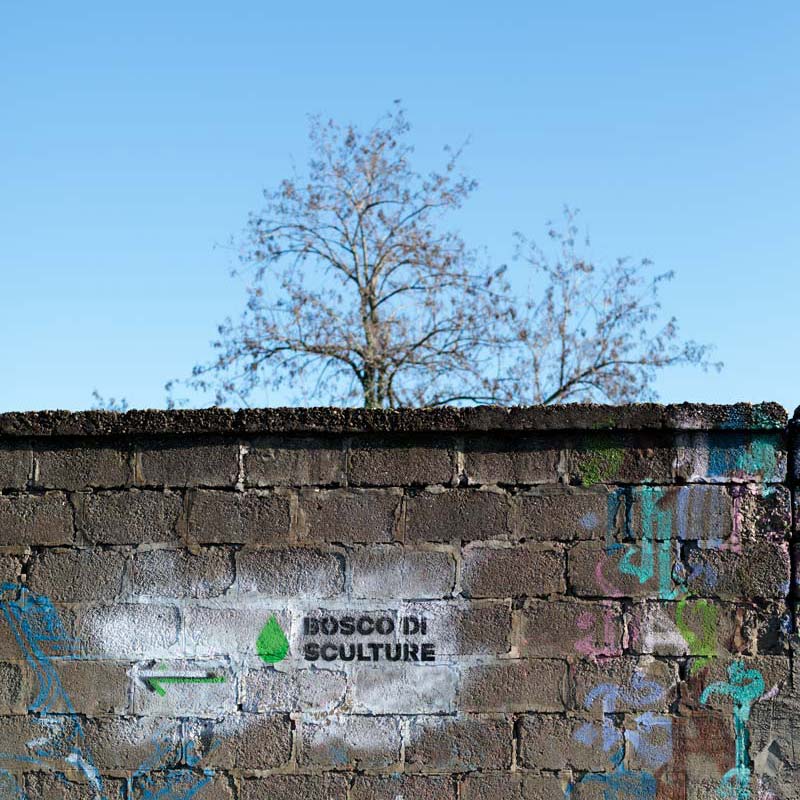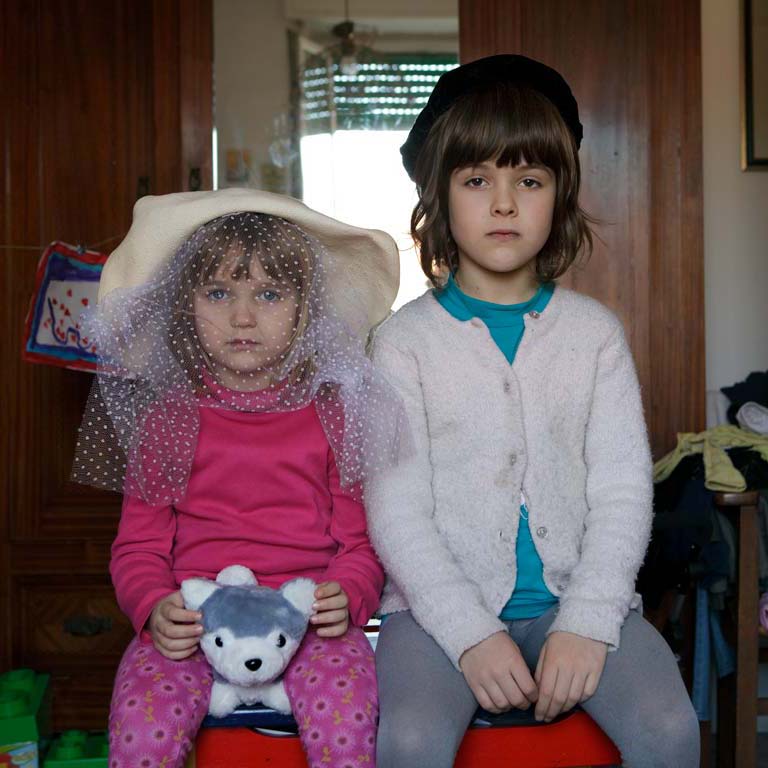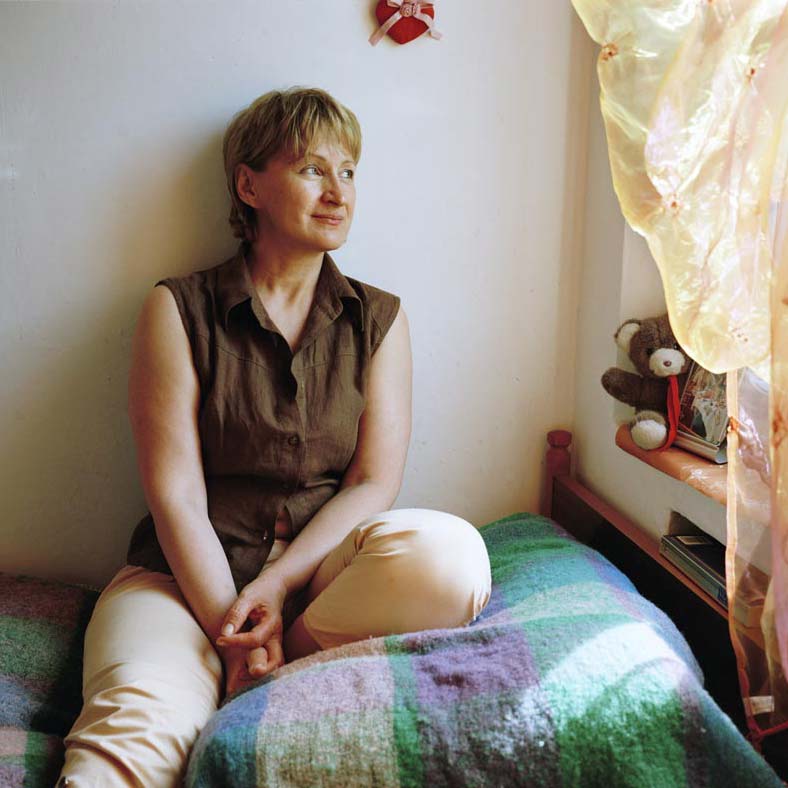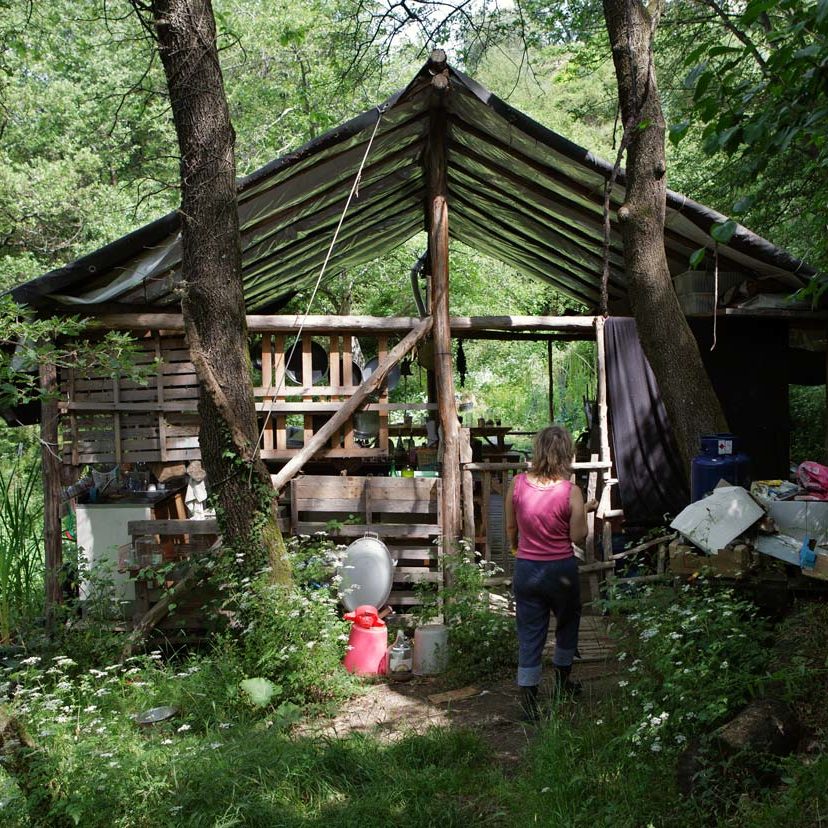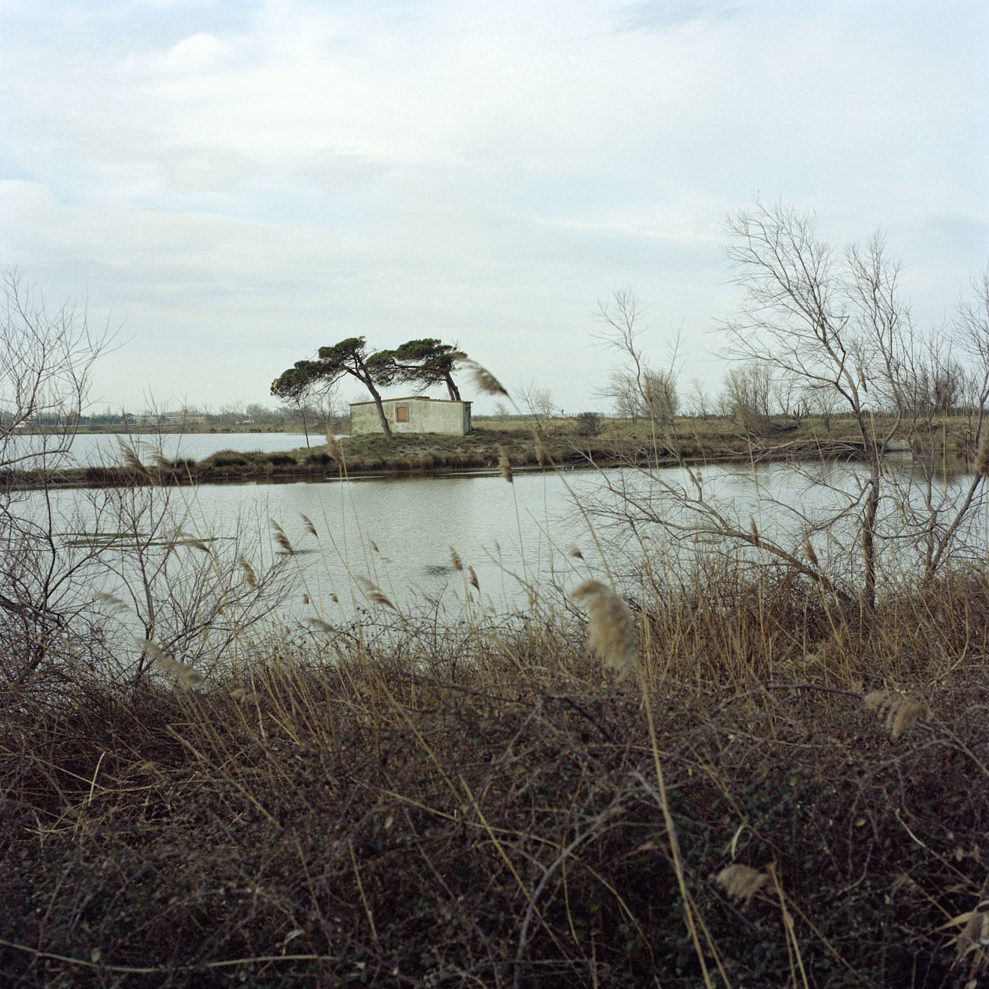[…] quante mai persone, ditemi, hanno cambiato dalle nostre parti due o tre volte in vita loro di nazionalità, di religione, di partito, di nome. Come se fossero state concepite in barca, si sono fatte della vita un’idea d’instabilità, di transitorietà come unica definitezza. […]
da “Una valigia di cartone”, Nelida Milani, 1991, Sellerio Editore Palermo
I miei nonni Guerrina Cossetto e Angelo, allora Kocijančič, poi italianizzato in Cociani, erano istriani. Quando nacquero, l’Istria faceva parte dell’Impero austro-ungarico, poi passò all’Italia, poi divenne Jugoslavia e ora è Croazia. Dopo la seconda guerra mondiale molti istriani se ne andarono, iniziò il cosiddetto “esodo”. I miei nonni decisero di venire in Italia, alcuni nipoti fuggirono in Australia; molti, tra i quali i miei bisnonni, i fratelli di mio nonno e due sorelle di mia nonna, rimasero. Attraverso di loro il forte legame con questa terra è giunto a me, insieme al desiderio di capire il presente e interrogare il passato, di far rivivere i racconti di mia nonna e dei parenti rimasti che inevitabilmente si sono mescolati con la memoria storica. E’ così che ho deciso di tornare in questa terra tanto amata, nel 2014 con mio padre e recentemente con le mie figlie. In questi viaggi ho cominciato a fotografare i luoghi, le persone, la casa dei miei nonni per raccogliere un corpus che al momento è di circa 50 fotografie.
[…] tell me how many people from these parts, have ever changed their nationality, their religion, their political party, even their very name two or three times during their lives. It seems as if they had been conceived on a boat, and they got a sense of life in terms of instability, of transience as the only definiteness. […]
from “Una valigia di cartone”, Nelida Milani, 1991, Sellerio Editore Palermo
My grandparents, Guerrina Cossetto and Angelo Cociani, formerly Kocijančič, were Istrian. When they were born, Istria was ruled by the Austro-Hungarian Empire, then it became part of Italy, then of Jugoslavia, now it is Croatia. After the Second World War, many Istrians left their homeland and the so called “exodus” began. My grandparents decided to move to Italy, some of their nephews took refuge in Australia. But many, including my great-grandparents, my grandfather’s brothers and two sisters of my grandmother, decided to stay where they were and in that way they passed their strong bond to this country along to me together with the need to understand the present and to question the past, and to revive and recollect my grandmother’s tales and those of my relatives who had stayed. Tales that inevitably mingle with historical memory. That is how I decided to return to this beloved land, in 2014 with my father and recently with my daughters. On these trips, I began to photograph the places, the people, my grandparents’ house, to collect a corpus that is currently around 50 photographs.
2014 – ongoing
[…] Nata a…? La risposta tarda ad arrivare. L’interlocutore è il professore delle medie prima, poi del liceo, dopo ancora l’impiegato degli uffici amministrativi dell’Università, e via via per tutto quel mare di fogli e pratiche burocratiche, tante, di cui è fatta una vita di studio, di lavoro, di certificati di nascita o di morte.
Aspetta, con un po’ di impazienza: è preparato sull’eventuale esitazione quanto alla data di nascita. Ma sul luogo…”Allora: nata, dove?”
“A Pola.”
L’impazienza aumenta: questa qui si permette di far perdere tempo anche con una banalità come la geografia. “Come ha detto?”
“Pola. Istria.”
Questa volta, l’esitazione passa dall’altra parte: qualche secondo di silenzio imbarazzato. E poi: “Ah, in Jugoslavia…Lei è jugoslava”. “Veramente no: io sono italiana. Sono nata in Italia”. Un’illuminazione: “Ah già, dimenticavo…Allora lei è profuga”.
E chissà perché la cosa, “lei è profuga”, faceva così ridere il professore, la professoressa, l’impiegata del comune o dell’anagrafe che me lo chiedevano.
A me veniva da piangere. Anche e soprattutto perché gli altri ridevano. […]
da “Bora”, Anna Maria Mori e Nelida Milani, 1998, Edizioni Frassinelli
[…]“Place of birth?” The answer is coming slowly. The first questioner was a teacher at the secondary school and then at the college, and later on it was the clerk at the university administration offices, and so on all through that multitude of files and paperwork of which a lifetime of work and study is made up, of birth or of death certificates.
He is waiting, with a little impatience. He is used to a possible hesitation regarding the date of birth, but not the place… “So, where were you born?”. “Pola”. The impatience is growing: this one here is taking the libertyto loose time even with such a trifle as geography. “What did you say?”
“Pola. Istria.”
Now it is him to hesitate. A few seconds of awkward silence. And then: “Ah, Yugoslavia … You are Yugoslavian.” “I am not, actually, I’m Italian. I was born in Italy.” An intuition: “Oh, sure, I forgot … So you are a refugee.”
And I wonder why the statement, “you are a refugee,” made the teacher laugh so much, and the professor, and the municipal employee or of the General Registry Office.
It made me cry instead. Especially because the others laughed. […]
from “Bora”, Anna Maria Mori e Nelida Milani, 1998, Edizioni Frassinelli











